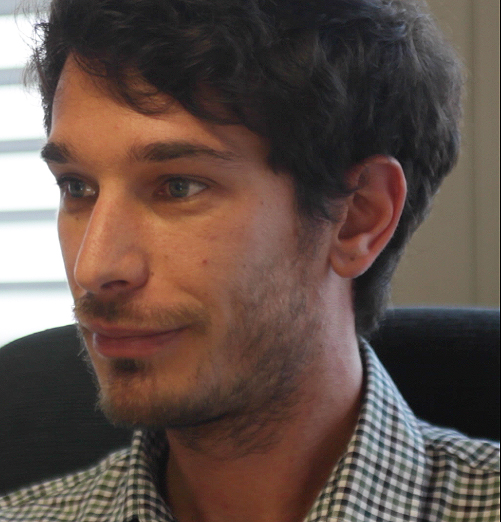Graziano Martello, 2014

Career Development Award Project Title
“Dissecting the Human Pluripotency Network”, 2014
Who he is
Graziano Martello is a molecular biologist and biotechnologist. After he graduated in Biotechnology in Padua, Martello went on to work from 2010 to 2014 at the Wellcome Trust Centre for Stem Cell Research at the University of Cambridge, UK, where he specialized in the study of the behavior of embryonic stem cells and their differentiation process. In 2014, thanks to the Armenise Harvard Career Development Award, he set up his own laboratory dedicated to this topic at the University of Padua.
What he does
It is a philosophical as well as a scientific question, in the sense that Martello’ s team is working on a matter of identity. Ever since his university studies on embryology development, he has been fascinated by the problem of cellular identity. What causes some cells in our body to change identity during development? What stops a skin cell from becoming a neuron, even though both are part of the same body and derive from the same initial cells? And above all, ‘who’ are these pluripotent stem cells: cells found in embryos, able to differentiate and give rise to virtually any tissue type of our body, but that seem not to have an identity of their own? What is the mechanism that allows them to acquire and maintain this particular state, and what mechanisms trigger and guide this differentiation in the varying cell types?
These cells can be obtained either from an embryo or by “reprogramming” differentiated cells, as biotechnologists have recently learned to do.
The therapeutic potential of this line of study is vast. Many groups are trying to learn how to instruct them in order to produce cells of a certain type, for example blood platelets, and so treat patients in whom that particular cell type is damaged. The project, financed by the Armenise Foundation, enables Martello to focus on understanding the basic mechanisms. This includes how stem cells work and how the process of differentiation works, which at present seems like a black box. Until we figure out how the process works, it will be impossible to create reliable experimental protocols to obtain the desired cells from stem cells, and make sure that the differentiation produces “good” somatic cells
News from the Lab
Recently Martello’s laboratory has also focused on another line of research, that of using pluripotent stem cells as a model to study neurodegenerative diseases, in particular Huntington’s disease. Adult cells of Huntington’s patients can be reprogrammed and transformed into pluripotent stem cells, to rewind the tape and simulate the course of the disease, and more specifically identify the genes involved in cellular degeneration.


